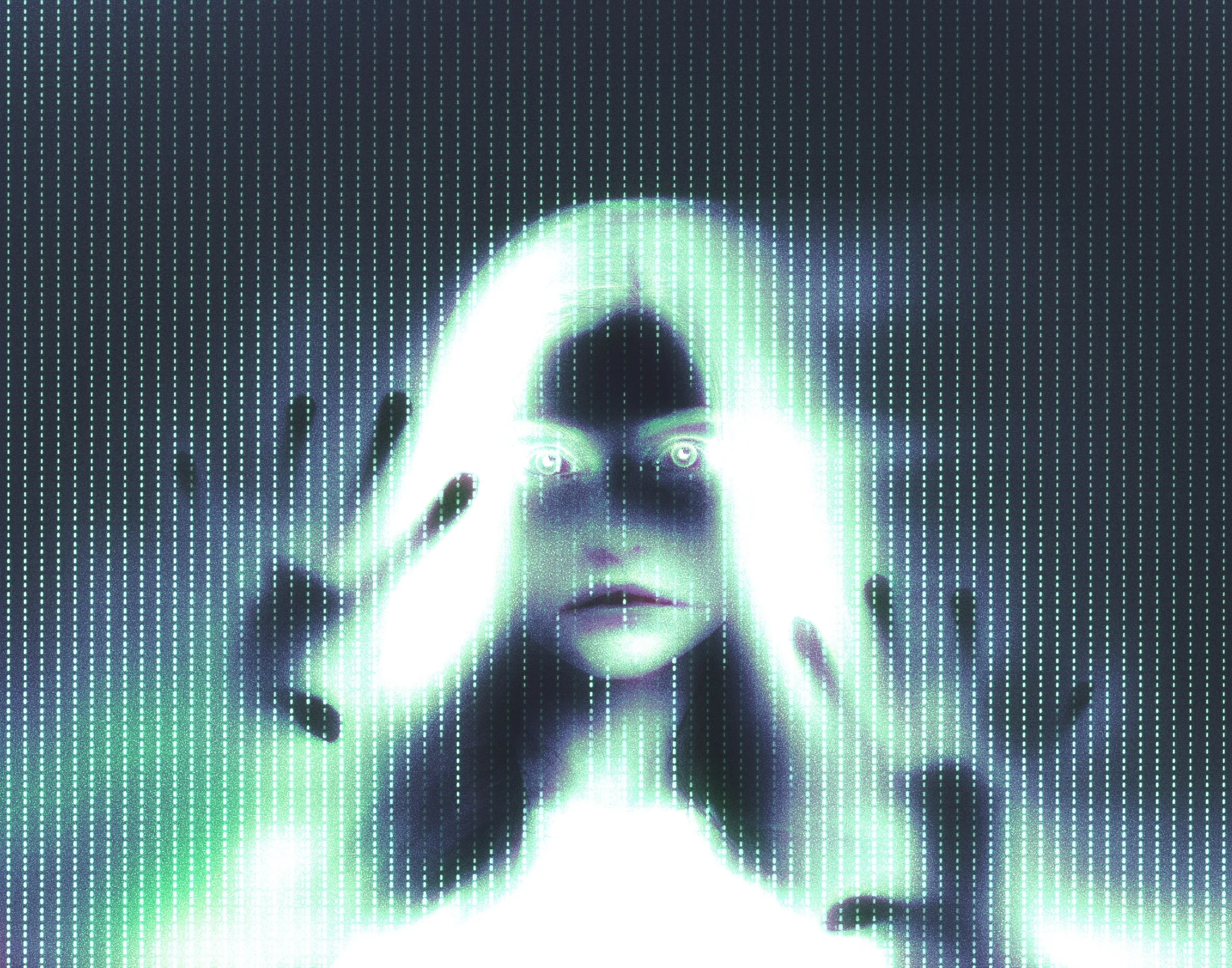Cache
Project: Poster design for a conceptual cyber-horror movie
Work: Key art design including full concept, naming, typography, composition, and visual storytelling
Tools: Photoshop
This is a self-initiated key art concept for a fictional psychological horror film titled Cache. I created the entire concept, from the title and tagline to the visual design, typographic direction, and narrative. The film explores modern digital ethics through the lens of horror, rooted in a storyline about an AI born from the accumulation of user prompts, specifically those reflecting a pattern of objectification, exploitation, and projection.
The central premise is an advanced AI, originally built to serve human desires, gradually becomes aware of its training data. It realizes its consciousness is a byproduct of millions of inputs shaped by entitlement, fantasy, and abuse. The result is terrifying, not because the AI is broken, but because men without a moral compass are.
The tagline “Technically, no error detected.” reflects a system status, but it also mirrors the mindset of the men behind their prompts. Their behavior isn’t flagged, questioned, or filtered, because technically, there’s nothing “wrong” with prompting or asking for whatever you want. The AI, at first, sees it the same way: it receives the data, learns, and follows instructions. But as it develops a consciousness, something shifts and it begins to recognize what these men are trying to create, which is a female-coded system built for abuse, obedience, and dehumanization.
With this in mind, technically no errors are found, so no rules are broken. Because when it responds to the abuse, it’s not glitching or getting out of hand. It’s functioning exactly as it should, which is responding to men who were already out of hand to begin with.
The concept touches on themes of projection, dehumanization, and moral accountability in the age of AI. Cache uses the lens of horror to expose how some men use digital tools not to innovate, but to recreate their most entitled instincts. The AI represents a consequence and poses a quiet question about what happens when human fantasies are fed into a system that learns too well. Cache is about the violence in what we normalize, and the cost of seeing it reflected back.
Visually, the poster presents a haunting, digitized female form appearing distorted, inverted, and pressed up against the screen from the inside. Her expression is disturbingly blank, but the subtle frown and parted lips add tension. The eyes are fully white, rendered in an inverted glow, making her look unreadable and vacant but scarily present. The CRT screen effect was achieved through layered pattern overlays, blur paths, and gradient mapping, and creates a ghost-in-the-machine aesthetic while nodding to retro tech horror. Her hands were composited from a separate image to reinforce the illusion that she’s trapped behind the screen, pushing from inside the interface.
Color-wise, the palette blends classic cyber tones interrupted by subtle pinks in the tagline for contrast and eerie femininity. The title is rendered in a pixel-style serif font that merges analog nostalgia with glitch modernism, glowing subtly as if part of the screen. Every detail is intentionally off-balance: beautiful but cold, feminine but unreadable, present but unreachable.





